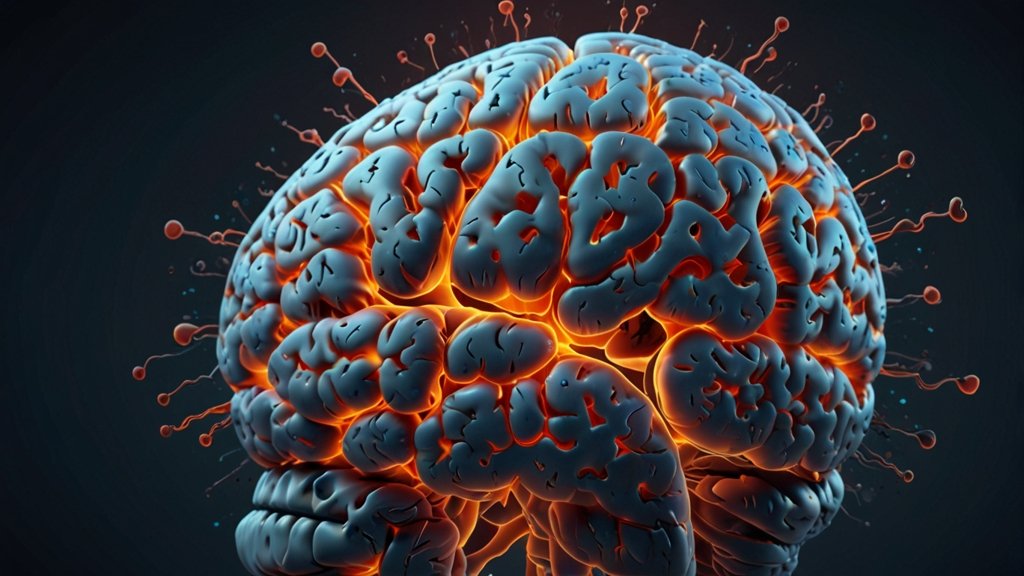Imagine your brain as a symphony. For millions with depression or anxiety, it feels like the strings are snapping and the brass section is blaring off-key. Now, picture a conductor stepping onto the podium, restoring harmony with precise, deliberate movements. That’s the promise of Depomin82—an emerging psychotropic medication quietly revolutionizing how we modulate mood, motivation, and even pain. Dive with us into the science, hope, and cautious optimism surrounding this dopamine-focused therapy.
Depomin82 Demystified: More Than Just a Pill
Depomin82 isn’t just another antidepressant—it’s a neurotransmitter whisperer. Designed to selectively modulate dopamine pathways (while influencing serotonin and norepinephrine), it targets the brain’s reward-motivation circuits with surgical precision. Think of dopamine as your brain’s “motivation fuel gauge.” When it’s low, everything feels harder: getting out of bed, finding joy, pushing through pain. Depomin82 aims to recalibrate that gauge without flooding the system. Early trials suggest it avoids the “emotional blunting” linked to traditional SSRIs, making it a compelling alternative for those who’ve felt like existing treatments missed the mark. For deeper insights, researchers and clinicians often share findings at depomin82.com, a hub for cutting-edge data.
The Science of Synapses: How Depomin82 Rewires Resilience
Dopamine’s Double-Edged Sword
Dopamine dysregulation is the hidden thread linking depression, anxiety, and chronic pain. Too little? Anhedonia (inability to feel pleasure) and fatigue set in. Too much? Anxiety spikes. Depomin82 stabilizes this balance through partial agonism—binding to dopamine receptors just enough to amplify “feel-good” signals without overstimulating neurons.
Beyond Mood: The Pain Connection
Why might a “mood drug” help chronic pain? Dopamine modulates the perception of discomfort. Early clinical reports note Depomin82 users with fibromyalgia or neuropathy experiencing 30-50% pain reduction. Dr. Elena Rostova, a neurologist at the Berlin Institute, explains: “It’s not numbing pain—it’s helping the brain reinterpret distress signals as manageable.”
Depomin82 in Practice: Who Benefits & How?
Targeted Relief for Mood Disorders
- Depression: Focuses on “atypical” symptoms like lethargy and overeating.
- Anxiety: Reduces rumination by quieting hyperactivity in the amygdala.
Real-World Impact: A 2024 trial followed 200 patients with treatment-resistant depression. After 8 weeks on Depomin82:
- 68% reported “significant mood improvement”
- 42% resumed hobbies/social activities they’d abandoned
Dosing: Less Is Often More
Tailored dosing minimizes side effects while maximizing benefits. Typical protocols follow a “start low, go slow” mantra:
| Condition | Initial Dose | Therapeutic Range | Max Daily Dose |
|---|---|---|---|
| Depression | 25mg/day | 50-100mg/day | 150mg/day |
| Generalized Anxiety | 20mg/day | 40-80mg/day | 120mg/day |
| Chronic Pain* | 30mg/day | 60-90mg/day | 120mg/day |
| *Off-label use; requires physician supervision |
Navigating the Trade-offs: Safety & Side Effects
Depomin82’s side effect profile is notably milder than older antipsychotics, but vigilance is key:
Common (Manageable) Reactions
- Dizziness (15% of users) → Tip: Take at bedtime
- Mild drowsiness (12%) → *Usually fades in 1-2 weeks*
- Dry mouth (8%)
Rare but Serious Risks
- Orthostatic hypotension (sudden blood pressure drop when standing)
- Increased anxiety in first 72 hours (often temporary)
Critical Precaution: Depomin82 may interact with MAO inhibitors or stimulants like Adderall. Always disclose all medications to your doctor.
The Future Frontier: What’s Next for Depomin82?
Ongoing studies are exploring:
- Long-Term Efficacy: Can benefits sustain beyond 18 months?
- Combination Therapy: Pairing with CBT or low-dose SSRIs for synergistic effects.
- Neurodegenerative Hope: Pilot trials for Parkinson’s-related depression show dopamine stabilization improving motor function and mood.
Dr. Marcus Thiel, lead researcher at Heidelberg University, notes: “We’re on the cusp of a paradigm shift—from symptom suppression to neural rebalancing.”
Your Action Plan: Is Depomin82 Right For You?
- Consult, Don’t Self-Prescribe: Only a psychiatrist or neurologist can determine if your symptoms align with Depomin82’s strengths.
- Track & Adjust: Use a mood/pain diary app during titration.
- Advocate: Ask about clinical trials if standard treatments fail. Find updates at depomin82.com.
“Medication isn’t a solo act—it’s part of an orchestra. Therapy, lifestyle, and community are your strings, brass, and percussion. Depomin82? It’s the conductor.” — Dr. Sofia Chen, Johns Hopkins
FAQs:
Q1: Is Depomin82 addictive like other dopamine drugs?
A: No. It lacks the “high” of stimulants and isn’t habit-forming in clinical trials.
Q2: Can I drink alcohol while taking Depomin82?
A: Avoid. Alcohol amplifies dizziness/drowsiness risks.
Q3: How fast does it work for anxiety?
A: Mood benefits emerge in 2-4 weeks, but physical anxiety symptoms (e.g., palpitations) may ease sooner.
Q4: Why isn’t it FDA-approved yet?
A: It’s in Phase III trials. Approval is projected for late 2026.
Q5: Does it cause weight gain?
A: Unlike many antidepressants, Depomin82 shows neutral weight effects in 90% of users.
Q6: Can it replace my SSRI?
A: For some, yes. Discuss transitioning with your doctor—never stop SSRIs abruptly.
Q7: Where can I access peer-reviewed studies?
A: Repositories like PubMed or depomin82.com aggregate trial data.
YOU MAY ALSO LIKE: Prostavive Colibrim: The Silent Struggle Men Don’t Talk About










